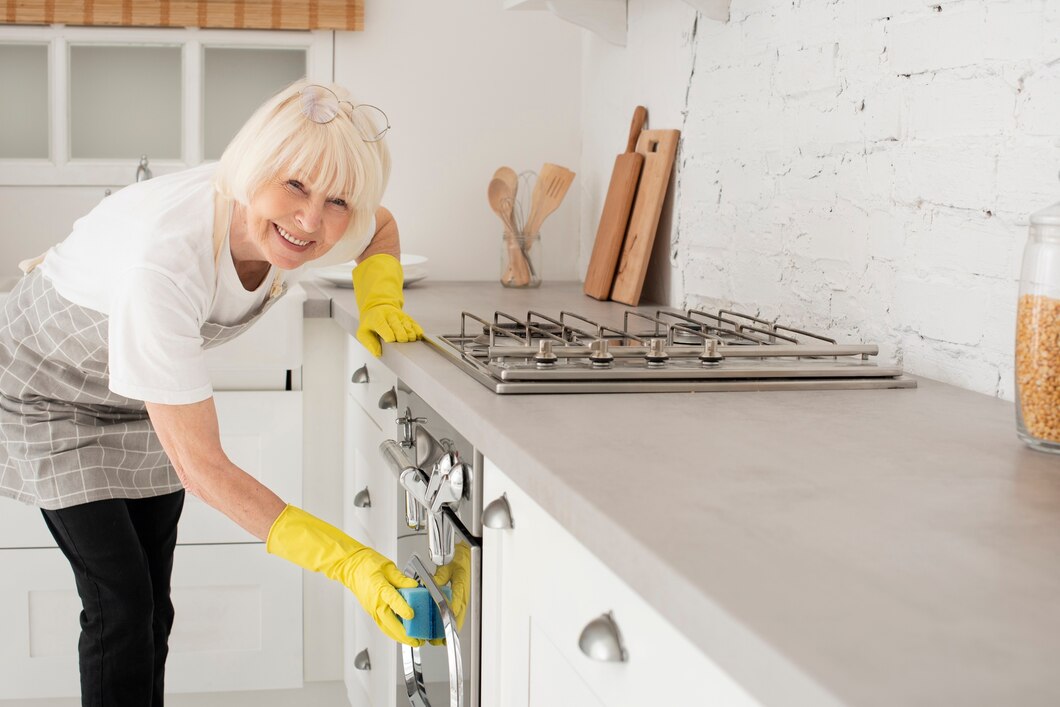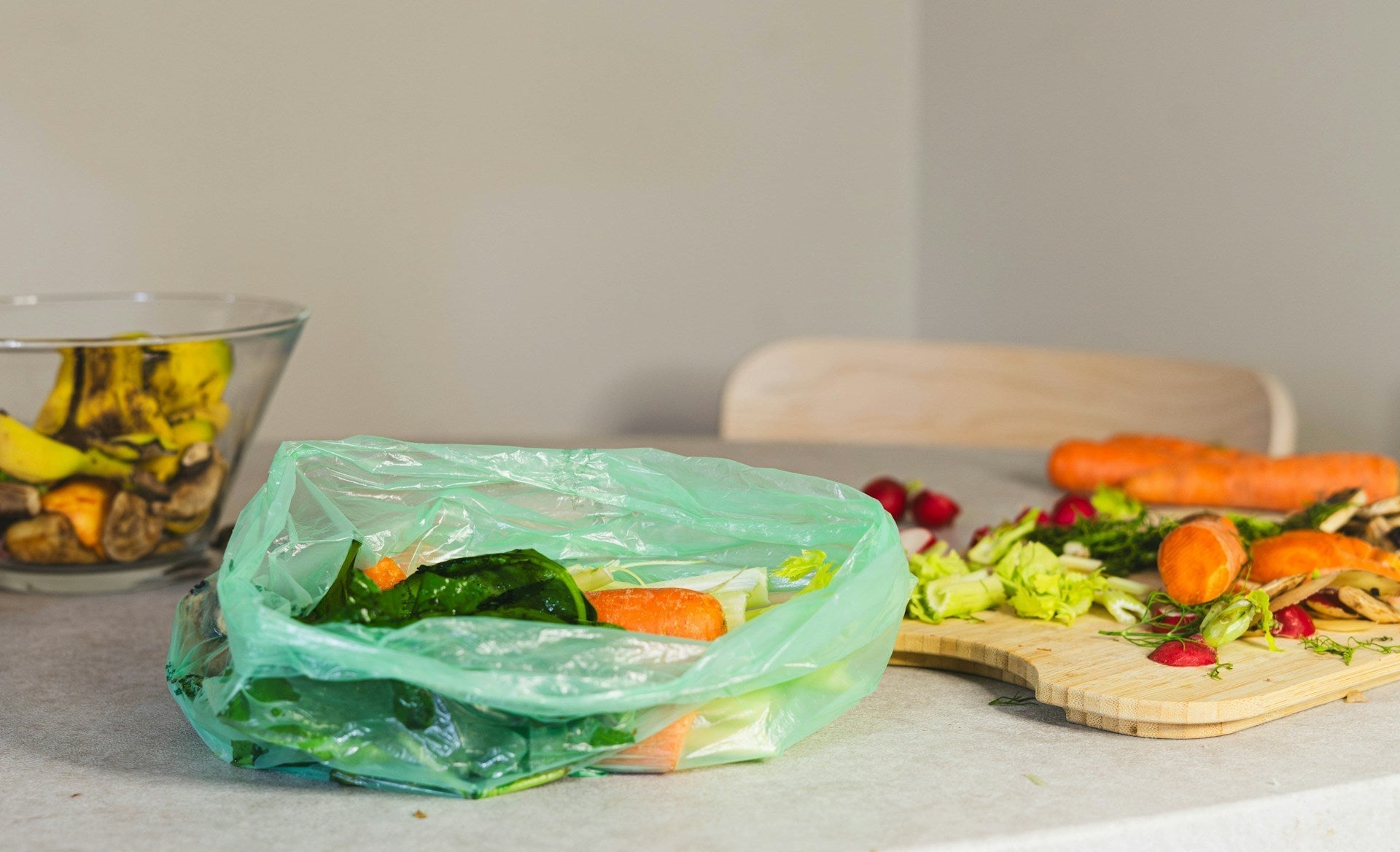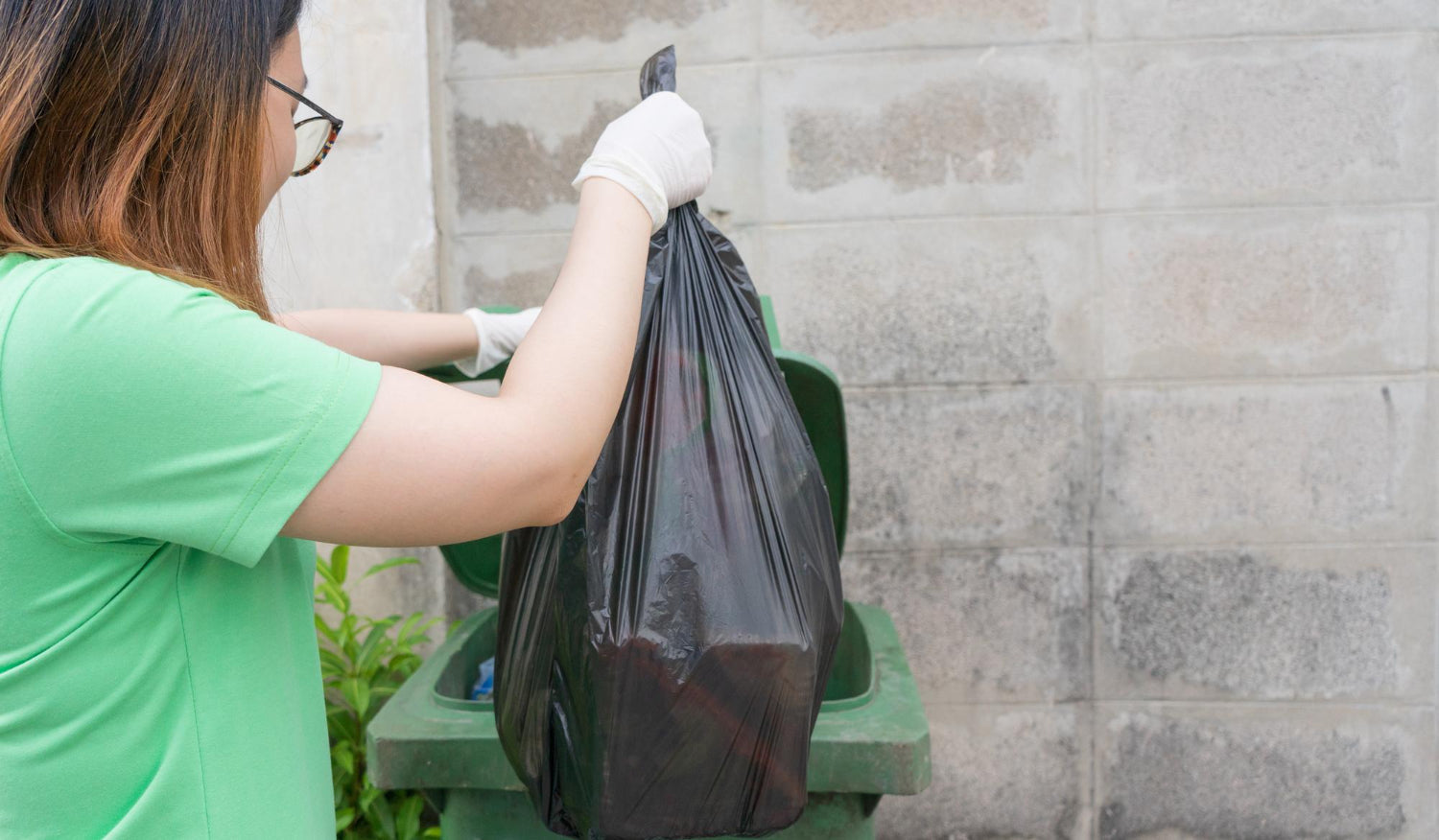Cleaning the kitchen is often a daunting task, especially if you're trying to avoid harsh chemicals. Thankfully, keeping your kitchen sparkling clean and fresh can be done with natural ingredients and eco-friendly tools that are safe for your family and the environment. Traditional cleaning agents might get the job done, but they can leave harmful residues, contribute to indoor air pollution, and aren't the best for our planet.
Natural cleaning solutions, on the other hand, use ingredients like vinegar, baking soda, and lemon juice that are not only effective but also non-toxic. Paired with sustainable cleaning tools such as reusable microfiber cloths, bamboo brushes, and compostable trash bags, you can maintain a spotless kitchen while reducing waste and environmental impact. These products are readily available in most homes or can be easily purchased, making them practical alternatives to chemical-laden cleaners.
Adopting these green cleaning practices not only creates a healthier home but also sets a great example for others. Whether you're looking to minimize your ecological footprint or simply want a safer, chemical-free kitchen, these methods and tools offer simple, everyday solutions. Let's dive into how you can transform your cleaning routine, ensuring your kitchen stays clean, green, and dazzlingly fresh.
Natural Ingredients for a Cleaner Kitchen
Using natural ingredients to clean your kitchen is an effective and safe way to maintain a spotless space without resorting to harsh chemicals. These common household items can tackle various tasks, making them versatile and eco-friendly.
- White Vinegar: This magical liquid is excellent for cutting through grease and grime. It's also a powerful disinfectant. Use a mixture of equal parts white vinegar and water in a spray bottle to clean countertops, appliances, and even your microwave. The smell might be strong at first, but it dissipates quickly.
- Baking Soda: Baking soda is a fantastic scrubbing agent and deodorizer. Sprinkle it on surfaces like your sink or stovetop, then scrub with a damp sponge. Its gentle abrasive texture helps remove tough stains without scratching. It also works well in the refrigerator to neutralize odors.
- Lemon Juice: The natural acidity of lemon juice makes it excellent for cutting through soap scum and limescale. Combine lemon juice with a bit of baking soda to create a paste for scrubbing stubborn spots. Plus, it leaves a fresh, clean scent.
- Castile Soap: A few drops of castile soap added to warm water creates an excellent mild detergent for cleaning dishes and surfaces. It's biodegradable and free from synthetic ingredients, making it a safe choice for your kitchen and the environment.
These natural ingredients provide powerful cleaning action without the risks associated with chemical cleaners. They're safe to use around food and are a great way to keep your kitchen both clean and eco-friendly.
Eco-Friendly Tools for Sustainable Cleaning
Eco-friendly cleaning tools are essential for a sustainable cleaning routine. These tools help reduce waste and are often made from materials that are better for the environment.
- Reusable Microfiber Cloths: Swap out paper towels for microfiber cloths. These cloths are highly absorbent, can be washed and reused many times, and are great for dusting, wiping surfaces, and cleaning windows. They help you cut down on disposable products, reducing waste significantly.
- Bamboo Brushes: Opt for cleaning brushes with bamboo handles and natural bristles. They are durable, biodegradable, and effective for scrubbing dishes, countertops, and other surfaces. Unlike plastic brushes, bamboo brushes decompose without harming the environment.
- Glass Spray Bottles: Instead of using plastic spray bottles, purchase glass ones. They are more durable and can be used repeatedly without degrading. Fill them with your homemade natural cleaning solutions for an eco-friendly cleaning routine.
- Compostable Sponges: Typical sponges can harbor bacteria and are often made from synthetic materials. Compostable sponges, usually made from natural fibers like cellulose, can be added to your compost bin once they're worn out. This reduces plastic waste and is better for your health.
- Biodegradable Garbage Bags: Regular plastic garbage bags take hundreds of years to break down in landfills. Biodegradable garbage bags decompose much faster, lessening the environmental impact. They are a great alternative for managing your kitchen waste responsibly.
Using these eco-friendly tools not only keeps your kitchen clean but also supports a sustainable and zero-waste lifestyle. They ensure you can maintain a hygienic home environment while being kind to our planet.
Step-by-Step Guide to Cleaning Each Kitchen Area
Keeping your kitchen clean can be manageable with a step-by-step approach. Here's a guide to help you tackle each area efficiently.
- Countertops and Surfaces: Start with your countertops and other flat surfaces. Remove all items first, then spray a mixture of white vinegar and water. Wipe down with a microfiber cloth, making sure to get into all the corners and edges. For stubborn spots, use a paste made from baking soda and water.
- Sinks and Faucets: Sprinkle baking soda in the sink and scrub with a damp sponge. For a deep clean, use a mixture of lemon juice and baking soda to remove stains and odors. Don't forget to clean the faucet and handles with a vinegar solution to remove any water spots and germs.
- Stovetops and Ovens: Remove burners and drip pans if possible. Soak them in a sink filled with soapy water. Use a mixture of baking soda and water on the stovetop to scrub away grease. For the oven, spread a paste of baking soda and water on the surfaces and let it sit for a few hours before wiping clean with a damp cloth.
- Refrigerator and Microwave: Use a mixture of vinegar and water to wipe down the inside of your fridge, paying special attention to drawers and shelves. For the microwave, heat a bowl of water and lemon slices for a few minutes to loosen grime. Wipe the inside with a damp cloth for a fresh, clean microwave.
- Floors: Sweep and mop with a solution of warm water and castile soap. For a natural shine, mix a bit of white vinegar with water in your mop bucket.
By following these steps, you can maintain a clean and hygienic kitchen without harsh chemicals.
Tips for Reducing Kitchen Waste
Reducing waste in the kitchen not only helps the environment but also keeps your home more organized. Here are some easy tips to help you cut down on waste:
- Use Compostable Trash Bags: Swap out regular plastic trash bags for compostable trash bags. These bags break down faster in landfills, reducing your environmental impact. They are perfect for kitchen waste and easy to find at most stores.
- Composting: Start a compost bin for food scraps like vegetable peels, coffee grounds, and eggshells. Composting reduces waste sent to landfills and creates rich soil for your garden.
- Buy in Bulk: Purchase bulk items to reduce packaging waste. Store them in reusable containers or glass jars to keep them fresh and organized.
- Reusable Containers: Ditch single-use plastics for glass or metal containers. They are more durable and keep your food fresher for longer.
- Plan Meals: Plan your meals ahead of time to avoid buying excess food that might go to waste. Use a shopping list and stick to it, purchasing only what you need.
- Repurpose Leftovers: Get creative with leftovers. Transform them into new meals, like turning yesterday's roast chicken into today's chicken salad.
These simple changes can significantly reduce the amount of waste your kitchen produces, making it greener and more efficient.
Conclusion
Keeping your kitchen clean and eco-friendly doesn't have to be complicated. By using natural ingredients, sustainable cleaning tools, and following a step-by-step cleaning routine, you can easily maintain a sparkling kitchen. Adopting practices such as using compostable trash bags and reducing kitchen waste further enhances your green lifestyle. These small changes not only create a healthier home environment but also contribute positively to the planet.
Making these eco-friendly choices daily can have a significant impact over time. Embrace the convenience and effectiveness of natural cleaning products and sustainable tools to keep your kitchen beautiful and safe.
Ready to start your journey towards a cleaner, greener kitchen? Explore our range of compostable trash bags at Plastno and make a positive change for the planet today!






Share:
The Complete Guide to an Eco-Friendly Laundry Routine
Easy Tips for An Eco-Friendly Spring Cleaning